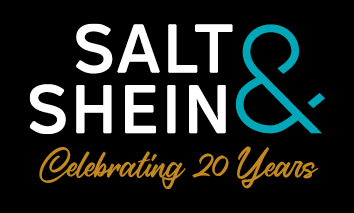Domestic violence in Australia’s evolving workforce
The line between the average person’s work and home life is blurring, as flexible work practices and diversity and inclusion programs align with business and social objectives. These changes mean that businesses are changing the way their corporate affairs messages respond to widespread social issues and communicate with staff. One of the major social concerns…
The line between the average person’s work and home life is blurring, as flexible work practices and diversity and inclusion programs align with business and social objectives.
These changes mean that businesses are changing the way their corporate affairs messages respond to widespread social issues and communicate with staff. One of the major social concerns currently dominating Australian thought is domestic violence, and organisations around the country are becoming increasingly cognisant of the link between offering flexible working hours and their involvement in the lives of their employees.
One of the most significant changes brought about by this development is defining what constitutes a safe work environment. With more and more staff being encouraged to work from home, employers are finding that in some cases, they may have inadvertently taken away the one refuge an employee has to escape from an abusive relationship.
The domestic violence landscape in Australia
A number of high-profile cases across Australia has seen the issue of domestic violence grow in the collective consciousness of the country, and the frightening statistics associated with these incidents adds further context to the issue.
According to the Australian Bureau of Statistics (ABS), 16.9 per cent of Australian women have experienced some form of violence from their partners at least once since they were 15 years old. While violence is the most common form of abuse, as the ABS figures show, domestic abuse can take a range of forms, including emotional, sexual and verbal abuse, among others.
Following Malcolm Turnbull’s appointment as Australian Prime Minister, the government announced a multi-million dollar effort intended to mitigate the effect domestic violence is having on people around the country. This includes $41 million to put emergency and social welfare departments through domestic violence response training, and $21 million to target the issue from an indigenous perspective, according to the International Business Times.
What’s changing for employers?
Employers are becoming more aware of the personal lives of their staff. According to Founder and Principal of Salt & Shein, Peter Salt, this is making the issue of domestic violence much more visible, creating a noticeable change in how organisations engage with staff and align their reputational risk management strategies.
“It relates to the way organisations are acknowledging their roles and responsibilities in engaging with their employees and the kind of open communication and trusted dialogue that needs to take place internally, which is driven from a human resources and cultural perspective,” he explained.
Employers need to ensure these internal dialogues are conducted with authenticity, which encourages staff to feel safe and bring any issues they may have to light without fear of mistreatment or hesitance on how their situations may be dealt with.
“The authenticity of the communication between organisations and their employees only continues to increase and improve, acknowledging that the relationships they have with their employees goes beyond the business,” Peter says.
“Now, it’s a whole relationship, in which it’s appropriate to talk about what is going on at home, because the home is now their office as much as their place of work is. A one-size-fits-all approach to workplace flexibility just doesn’t work for everyone and yet those most vulnerable are often too embarrassed to explain why.”
What’s the result?
These changes alter what it takes for an employer to be attractive to professionals, as there’s a new set of considerations for candidates to keep in mind when finding an organisation they engage with.
“It redefines the concept of what ’employer of choice’ means,” Peter explains. “Now, the employer of choice is one who is acknowledging the expanded breadth and scope of the relationship they are entering into with their employees and the role they play in that relationship.”
White Ribbon accreditation plays a significant role in this. The organisation is male-led, and is a key representative in the fight to end male violence against women.
White Ribbon leads a range of different training and education programs for businesses and individuals. As a White Ribbon Ambassador himself, Peter actively champions the value these initiatives bring to organisations or individuals seeking information and education on domestic violence against women.
“It’s about teaching and educating people in the workplace on the kinds of interactions, behaviours, attitudes and often an unconscious bias that is so ingrained in Australian culture that needs to change,” he said.
“Whilst this isn’t the solution to stopping all domestic violence from occurring, it’s yet another step in the journey towards trying to identify what is going to stop men from feeling as though it is okay to be violent towards women.”
Overall, it will take commitment from a range of people and organisations to uncover what needs to be done to reverse these statistics.
Discover insights.
Creating messages that cut through social media, news cycles and even the humble inbox has never been easy, but, with more noise across more channels, it’s become more important than ever to create messages that stand out and land with impact. Visual communications tools are gaining traction as a way of shaping messages that hit…
Looking for greater choice in the contract options available to you? Having history and rapport with a specialist recruiter like Fraser Clapcott will open doors to opportunities you may have missed for yourself, that add value for both contractor and employer. In the current climate of uncertainty, a willingness and propensity for flexibility comes with…
If you’ve been ruminating on changing-up your comms career, now may be the ideal time to talk with your trusted recruiter about making a move. Salt & Shein Director, Lucy Newcomb, sees significant scope for motivated communicators to broaden their career horizons, and make the job of their dreams a reality, in 2023. “A rapidly…







